How to Store Gasoline at Home
If you are an experienced prepper or you’re just starting to prep, one of the most important things you may need for various reasons is gas. Learning how to store gasoline at home is easier than you think. It’s not wise to try and run to a gas station when something bad has happened. Whether it’s a natural disaster or an unexpected emergency, having gas on hand is one of the smartest things you can do. You may know the basics about plastic gas containers, but do you know how to store has at home? Check out these tips and put them to good use! If you’re going to spend money on gas, it’s important that you know how to utilize the proper storage techniques!
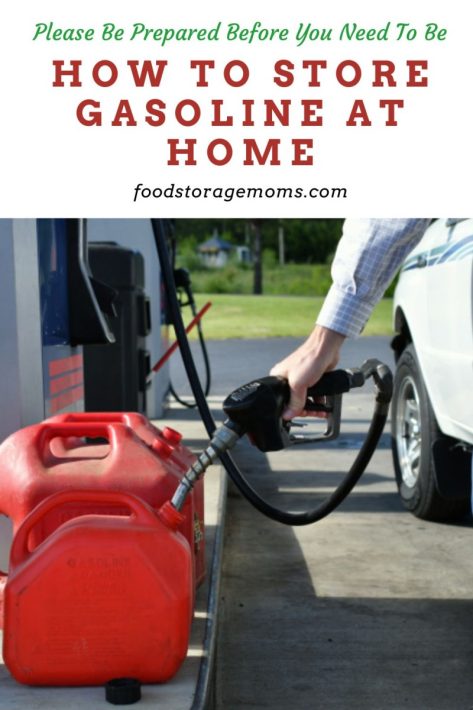
Tips for Storing Gallons of Gasoline
Not everyone knows the answer to critical issues, especially when it comes to fuel. I wanted to do some research on what tips you could use for storing gallons of gasoline. I know many of us have been storing gasoline for years, but I always want to make sure I’m doing things the best and safest way possible!
Check with Local Laws
I can guarantee you that there is at least one local law in your area that has something to do with storing gasoline containers. Always check with the local government before storing any type of fuel product, including gasoline. Most city and state laws are listed online, so all you have to do is do a little research.
If you live in an HOA, condo complex, or apartment building, there are most likely even more strict rules on gasoline storage. Feel free to call your local fire department too. They most likely are up to date on what you can or can’t do when it comes to how to handle gasoline and can make a recommendation or two about proper gas storage. 7 General Hunting Laws You Should Know
Always Keep Out of the Reach of Children
I know this seems like a tip that everyone should know, however, it’s well worth repeating. You should never store gas cans anywhere where kids can have access to them. This is a fact of life. It can cause a dangerous situation, particularly with kids’ inquisitive nature and fascination with matches. Never put your containers where young children can get to them easily. It may take a little creativity to figure out where you can store extra gasoline, but you can do it! Survival Skills to Teach Young Children
Pets can also be an issue to consider. Don’t store the gasoline where pets can breathe in the gasoline vapors or where a large pet may knock the container over.
Safety is Most Important
When it comes to storing gallons of gasoline, safety is the biggest concern. There are strict safety practices for storing gasoline for a reason. The best advice would be to treat the gasoline around your home the same way you would treat a weapon. Gasoline, including the vapor and gas fumes, is very powerful, which is why it’s used for your car’s gas tank. Safety Information For Short-Term Rolling Blackouts
How to Store Gasoline
Where do I store gasoline? Here are some tips for helping you accomplish this task:
Store in the Correct Container
The first step in storing gasoline is “Gasoline must be stored in an approved container or tank.” source This is the most important thing to remember! You can’t just put gas into any storage container, it has to be a certified fuel container. Eagle UI-50-FS Red Galvanized Steel Type
Gasoline changes composition over time. It isn’t designed to be stored long-term, even in large fuel tanks. Whether it’s your lawn mower, tiller, or other small engine machines, it’s best to drain the gas at the end of the season or put in special gasoline additives as suggested by the manufacturer so the gasoline maintains its proper composition. This also applies to your vehicle if you expect it to be parked for an extended period.
Gas Should be Stored at Room Temperature or Colder
Another important step to remember is gasoline is flammable. It should be stored in approved sealed containers away from any heat sources, ignition sources, or anything that may cause sparks. Don’t store it near your furnace, hot water heater, or even out in the sun. It’s also important to not smoke near gas containers. Store gas away from pilot lights, even those that require an electrical igniter. A space heater is a “no-no” for sure!
Your local fire department should be able to explain any local fire codes that restrict the storage of gasoline or other fuels.
Try to Handle Gas Outside
In my opinion, it’s best to handle gas outside. This way, if it spills, even if it’s a small amount, it’s outside and then you can handle the cleanup fairly easily. If there is a spill, the gas should be cleaned up with rags, paper, or even sawdust. Larger spills can prove to be more of a challenge. Check with local regulations to see how they would like gasoline disposed of. Don’t EVER put gas in the residential trash can to be carried off to the landfill or poured down local street drains!
When cleaning up the spill, try not to create any static electricity. It’s best to lay the absorbing materials on the spill and then gather them up rather than “wiping” things down since that can create some static electrical results.
Don’t Mix Gas
Again, some of these tips are common sense, but not everyone grew up with someone telling them what to do with things like gasoline. Don’t ever mix gas with anything like kerosene or diesel fuel. Gas is a very flammable liquid that can easily be struck into flames. Proper disposal is important because it’s one of the most dangerous liquids.
FAQs for How to Store Gasoline
Storing gasoline is an important safety measure to take, as it can be extremely hazardous if not done properly. Here are some frequently asked questions about how to store gasoline safely:
What kind of container should I use?
When storing gasoline, it is important to only use containers that have been approved for that purpose by the Department of Transportation. These containers will usually be labeled or have a DOT symbol on them. It is also best to choose containers that are 5 gallons or less in size.
How long can I store gasoline?
Gasoline has a relatively short shelf-life and starts degrading after one month. Most people avoid using gas once it’s 6-12 months old. To extend the life of your stored gasoline, you can add a fuel stabilizer to it. A 10-ounce bottle of stabilizer will keep 25 gallons of gasoline fresh for a whole year.
Directly from Matt:
“PRI-G is the best I’ve found. I’ve tested it for 5 years. CP122 Pri-G Gasoline Treatment – 32 oz.
They make a PRI-D for diesel too, though I’ve not used it. PRI 32-D -D Fuel Stabilizer- for Diesel
STA-Bil is only good for a year.” STA-BIL Storage Fuel Stabilizer
Where should I store my gasoline?
It is best to store your gasoline in a well-ventilated area separate from the house and away from any electrical equipment, open flames, or other sources of ignition. Don’t store it in your garage, if possible. Consider a shed if it has some separation from your home and can be properly ventilated.
Is there a special storage cabinet I should consider for my flammable liquids storage cabinet?
There are commercially manufactured cabinets designed for storing flammable liquids. They can be a little pricey, come in various sizes, and are rated for use as required. A Google search provides a wide variety of options for you to consider based on your specific needs.
Final Word
The next time you are curious about how to store gasoline at home, I hope you can use these tips! Learning how to store gasoline can be scary because it’s such a flammable liquid and you don’t want to make any mistakes. Do you have any tips to add? Preppers should be storing at least a little gasoline in case of an emergency where gasoline engines are needed. The question is, have you started this process?
The challenge of fuel storage is one of the reasons I haven’t purchased a home generator. The day may come, but I’m not ready for that major purchase at this time. May God Bless this world, Linda.
More Prepping Tips
- What is the Best Firewood for Home Heating?
- Prepping Items You Can Find at Thrift Stores
- Best Way to Start Prepping
Links for information
- https://www.familyhandyman.com/project/how-to-store-gasoline/
- https://theprepared.com/homestead/guides/how-store-gasoline/
- https://www.exxon.com/en/gasoline-safety-storage
- https://www.api.org/oil-and-natural-gas/consumer-information/consumer-resources/safe-storage-and-disposal-of-gasoline
Copyright Images: Gas Can Containers AdobeStock_604973285 By MargJohnsonVA

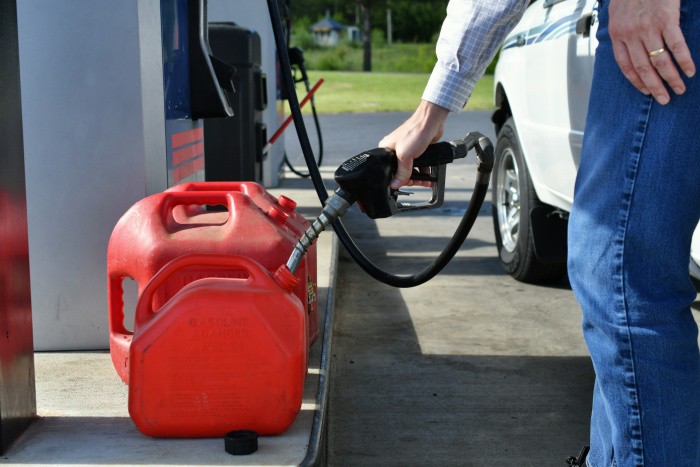

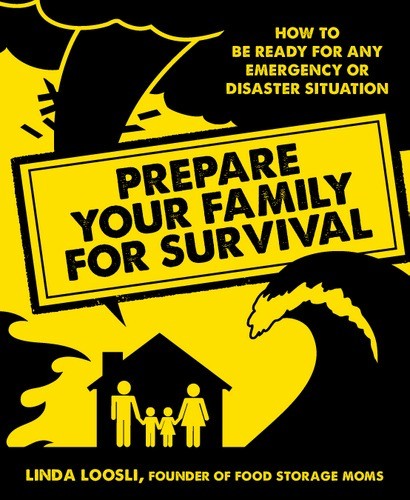


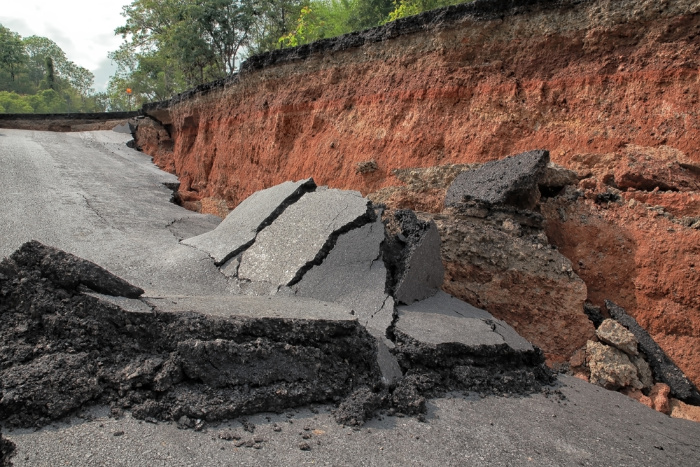

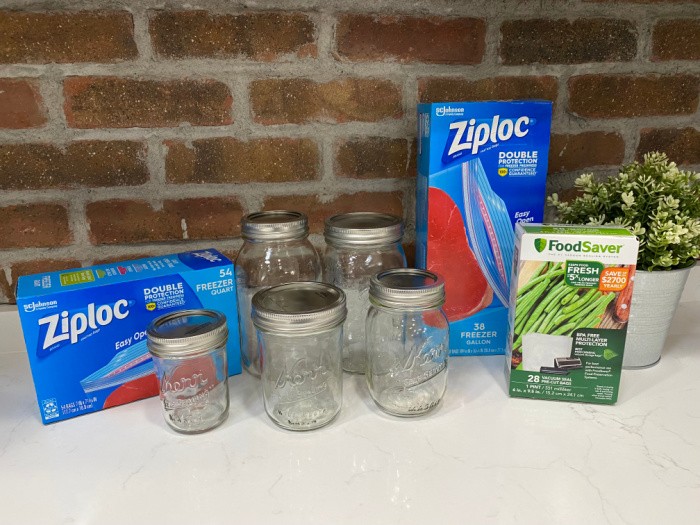













Once you’ve used your supply your OPSEC you should have maintained will be gone. The neighbors will notice you had power for 3 days during the ice storm. They will mention it. That is the time to help them prepare for the next one. If they don’t then you know you have a potential problem during a major emergency.
Rotate them in the lawn mower, do monthly generator tests and understand that if the fuel does go bad and it’s put in a generator it’s not too hard to pull the line and dump it and put fresh in.
Smell is a good indicator of fuels gone bad. It won’t smell the same.
HI Matt, thanks for this information, smell, I hadn’t thought about that. When I write these articles I hope I am “lighting” a fire under those who have not prepped for anything. Research, reading, testing, practicing is the name of the game. Thanks for your help, Linda
Linda,
A slight amendment to Matt’s comment about STA-BIL fuel stabilizer. It is good for up to two years. While I would not recommend keeping it for that long if used to store gasoline containing ethanol, I only store ethanol-free gasoline and have had no problem with it approaching two years of storage.
Hi Harry, it’s interesting when I read the information on the Amazon link it mentioned 2 years. That’s why I write these article to help us all talk to each other. Thank you, Linda
Linda,
I agree with Matt that Pri-G is better than Sta-Bil. I only store premium gasoline with Pri-G added to it. I store about 25 gallons or so, outside–and since it gets so hot here I use it up every year and refill. And Harry is right about not storing gasoline that contains ethanol.
Hi Ray, I was always afraid to store gasoline in Southern Utah because the summer temps were so high. I stored a lot of propane. I love our group here because of all the knowledge we share. Linda